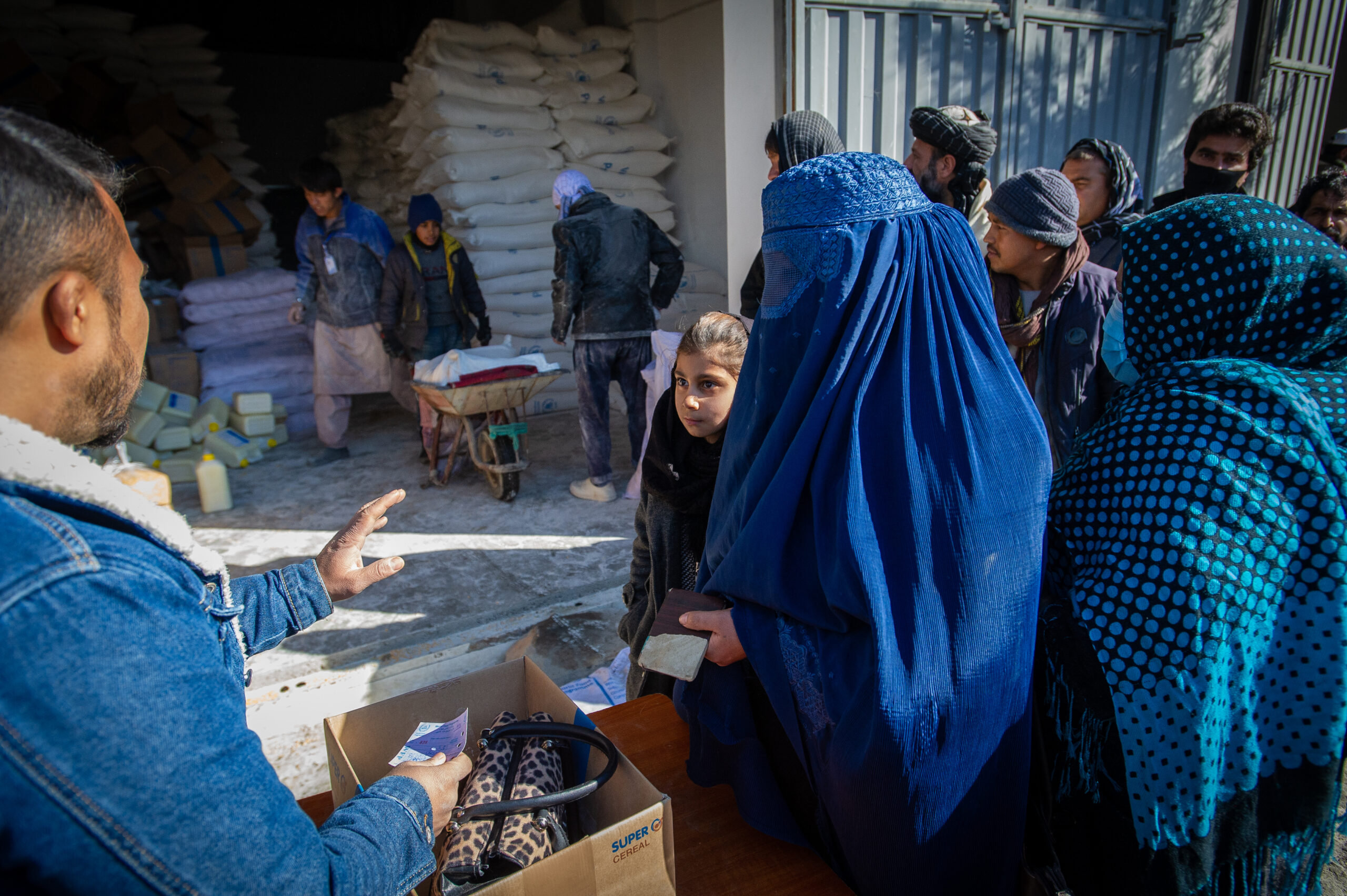On April 4, the Taliban sent a notice to the UN mission in Afghanistan: their female staff were no longer allowed to come to work. Zahra Joya, an Afghan journalist in exile who founded and runs Rukhshana Media, an Afghan women’s media group, writes about the turmoil caused by this decree.
For Sabra, a 26-year-old Afghan who asked to be identified by a pseudonym, the Taliban’s ban on female employees working for the United Nations is tantamount to eliminating women from society.
That’s why she’s joined a group of women’s rights activists called the Coalition of Women’s Protest Movement in making a radical demand: They want humanitarian organizations to cease operations in the country, even though around two-thirds of its 40 million population is reliant on foreign aid for survival — about 28 million people, including 15 million children.
The U.N. has strongly condemned the Taliban’s move and called it a clear violation of its Human Rights Charter. In a statement last Tuesday, the U.N. mission in Afghanistan accused the Taliban of seeking to “force the United Nations into having to make an appalling choice between staying and delivering in support of the Afghan people and standing by the norms and principles we are duty-bound to uphold.”
Sabra and her fellow protesters say the U.N. and other aid agencies’ flexibility and willingness to cooperate with the Taliban has backfired. She and her fellow protesters want the UN and aid organizations to put forward an ultimatum: roll back the ban, or take responsibility for the economic and humanitarian consequences that follow if the flow of aid stops, with six million people already on the verge of famine.
Now is the time for such extreme measures, she says. The latest ban will not just affect the roughly 800 women who work for the UN, although it will be a severe blow for them. What Sabra is more worried about is that in Afghanistan, if women are not involved in distributing aid, it will simply not reach the women who need it — either because male aid workers will not be able to access women in need, or because Taliban corruption will divert resources intended for women towards other causes.
“Women go from village to village to identify poor families who do not have food for their children to eat,” she says. “The presence of women in the process is essential.”
Sabra believes that continuing with business as usual in the hope that aid organizations can still reach women would be wishful thinking. The women believe the Taliban are bluffing, and need aid groups more than the aid groups need them.
The U.N. has already halted most of its operations as it assesses the impact of the ban, and its statement laid the blame for any consequences squarely at the feet of the Taliban. “It should be clear that any negative consequences of this crisis for the Afghan people will be the responsibility of the de facto authorities,” it said.
Women were already under pressure after the Taliban passed a decree last December banning them from working for international NGOs. Since then, a U.N. Women survey found that 93% of humanitarian groups were having trouble accessing women. The World Food Program’s January situation report found that 84% of female-headed households weren’t able to consume enough food.
Humanitarian organizations such as the WFP have faced criticism for continuing to work with the Taliban, who have been accused of misappropriating food aid for their own purposes, including selling it for profit. Sabra says the U.N.’s female employees were critical in preventing such embezzlement and ensuring food and other goods reach the women they’re intended for.
Shamayil Tawana, a fellow protester in Kabul, says female aid workers were also an important channel for Afghan women to share their problems with humanitarian agencies.
Tawana, who has conducted research on the distribution of international aid in the country, says that women in distant provinces, and even in Kabul, told her that they struggled to make local politicians hear their concerns.
“Women tell me that the local officials do not engage with them,” Tawana says. “They say, ‘you should go back home, I will not talk to you.’ Since the Taliban took control, men behave very harshly with women, they won’t even talk to women who are the heads of their families.”
“None of the U.N.’s humanitarian aid reaches these women,” she adds. “They only get aid from private donors.”



